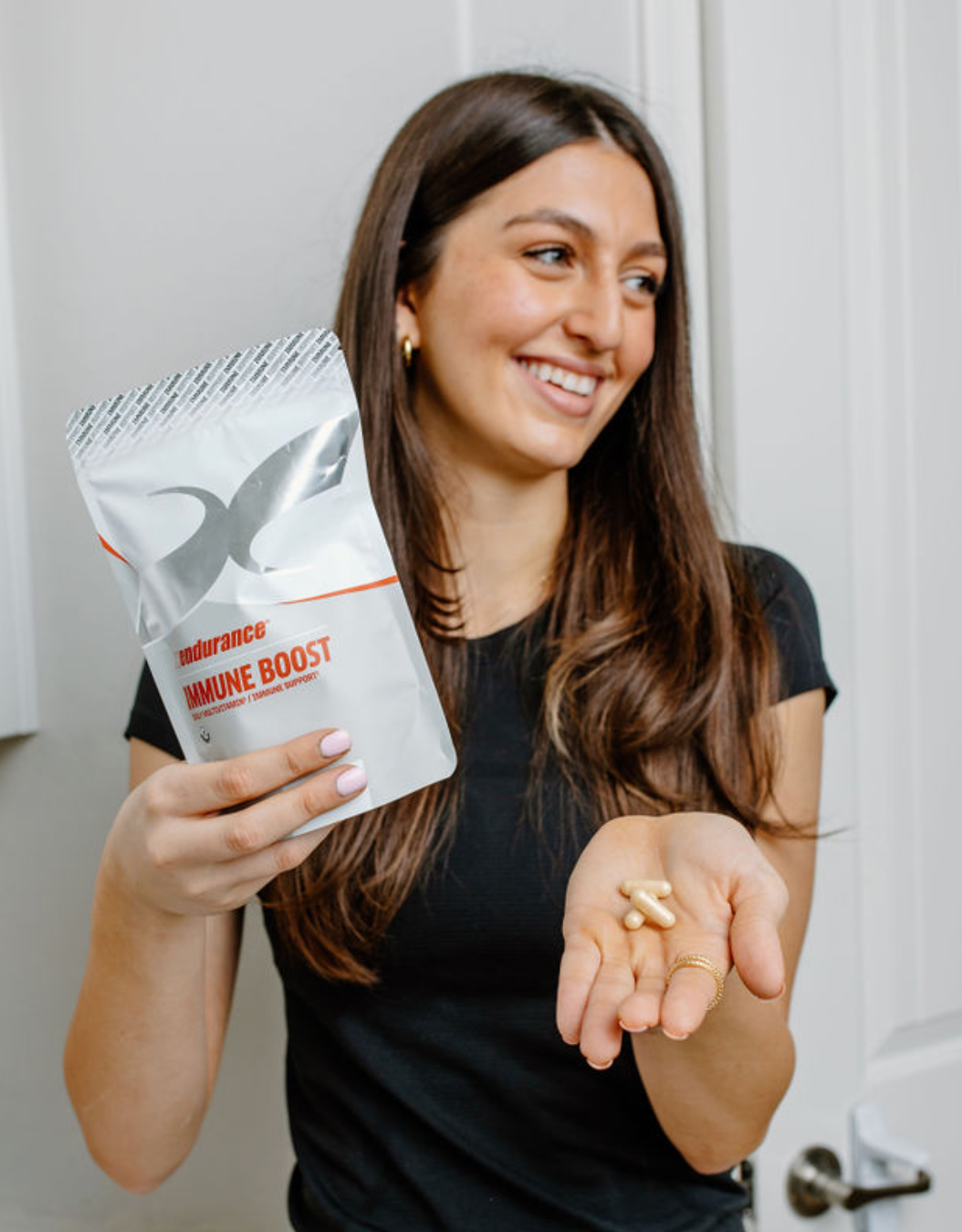Our health is influenced by a multitude of factors, including stress, lifestyle, diet, exercise, environment, genetics, and socioeconomics. As individuals, we have unique health needs, and these needs can be affected by various educational and economic factors. In this blog post, we will explore the question of whether you really need a multivitamin and whether multivitamins truly work. We will delve into everyday life examples and scientific evidence to give you a good basis as to the effect a multivitamin may have on your well-being.
What is a Multivitamin?
A multivitamin is a dietary supplement that contains a combination of essential vitamins, minerals, and sometimes other nutrients such as antioxidants and phytonutrients. It is designed to provide a convenient and comprehensive way to support overall health and fill potential nutrient gaps in the diet. Many consider multivitamins as “health insurance"
The Importance of a Balanced Diet
In this fast-paced world that we live in, do we really take the time to eat right? And what does eating right mean? One of the key foundations of good health is a balanced diet. A diet rich in fruits, vegetables, whole grains, lean proteins, and healthy fats provides the essential nutrients our bodies need to function optimally. These nutrients include vitamins, minerals, and antioxidants, which play vital roles in supporting various bodily functions and maintaining overall well-being. It is very important we have a balanced diet, but the question is how many achieve this?
Listen to your body: What nutrients are you missing?
Think about everyday life examples of just feeling good - or maybe not.
- Stress and Sleep Deprivation: In our fast-paced lives, stress and sleep deprivation are common issues. Addressing the underlying causes of stress and improving sleep habits will have a significant impact on our overall well-being but its possible nutrients can fill in the gaps.
- Sedentary Lifestyle: If you lead a sedentary lifestyle with minimal physical activity, a multivitamin won't compensate for the lack of exercise. Regular physical activity plays a crucial role in maintaining a healthy weight, improving cardiovascular health, and reducing the risk of chronic diseases. But will adding nutrients to your diet improve the likelihood you will get off that couch?
- Nutrient Absorption: Even if you take a multivitamin, the absorption and utilization of nutrients can vary from person to person. Factors such as age, digestive health, and medication use can impact how efficiently our bodies absorb and use these nutrients. Educating yourself on whether your body is absorbing a multivitamin’s nutrients is important.
- Cravings and Hunger Signals: Our bodies have a remarkable ability to communicate their nutritional needs through cravings and hunger signals. While cravings are not always an accurate reflection of nutrient deficiencies, they can provide insights into what our bodies may be lacking. For instance, a craving for sweets might indicate a need for more energy or certain nutrients like magnesium. By paying attention to these cravings and making conscious choices, we can strive to satisfy our body's needs in a balanced and nourishing way.
The foods we consume play a vital role in our energy levels, mood, and overall well-being. By listening to your body, you can become more attuned to the effects that different foods have on your energy levels and emotions. For example, if you notice that certain foods leave you feeling sluggish or irritable, it may be an indication that they are not providing the nutrients your body requires. On the other hand, if you feel vibrant, focused, and satiated after a particular meal, it suggests that you have provided your body with the right combination of nutrients it needs to function optimally. This is where a multivitamin may come to the rescue.
What is Bioavailability?
Bioavailability refers to the extent and rate at which a substance, such as a nutrient is absorbed and utilized by the body. In the context of multivitamins, bioavailability refers to how effectively the vitamins and minerals in the supplement are absorbed and utilized by the body.
What are Chelated Minerals and Do They Affect Bioavailability?
Chelated minerals are mineral forms that are bound to organic compounds, typically amino acids, to enhance their stability and bioavailability. The word "chelate" comes from the Greek word "chele," meaning "claw," as the organic compounds wrap around the mineral like a claw.
Chelated minerals offer several advantages in terms of bioavailability:
- Chelation helps protect minerals from interactions with other compounds in the digestive system that may hinder absorption. The organic compounds that chelate the minerals can act as carriers, facilitating the transport of minerals across the intestinal wall and into the bloodstream. This enhanced absorption ensures a higher percentage of the mineral reaches the systemic circulation and is available for use in the body.
- Chelated minerals are generally more stable compared to inorganic forms. This stability prevents the minerals from binding with other substances in the digestive tract, which can reduce their bioavailability. By protecting the mineral from chemical interactions, chelation helps maintain the integrity of the mineral until it reaches the absorption site.
- Chelated minerals may experience reduced interference from other dietary components. For example, certain dietary fibers and phytates found in plant-based foods can bind to minerals and inhibit their absorption. Chelation can help bypass or minimize these interactions, allowing for improved absorption of the mineral.
Chelated minerals commonly found in multivitamins and mineral supplements include chelated forms of iron, zinc, calcium, magnesium, and copper, among others, and have been shown to have higher bioavailability compared to their inorganic counterparts.
What are the recommended essential vitamins to take for optimum health?
For optimum health, it is generally recommended to obtain essential vitamins through a balanced diet rather than relying solely on supplements. However, there are certain vitamins that play crucial roles in supporting overall well-being. Here are six of the essential vitamins and their functions:
- Vitamin A: Supports vision, immune function, and cell growth. Good food sources include carrots, sweet potatoes, spinach, and liver.
- B vitamins: This group includes several vitamins such as B1 (thiamine), B2 (riboflavin), B3 (niacin), B6 (pyridoxine), B9 (folate), and B12 (cobalamin). They are involved in energy production, nervous system function, red blood cell production, and DNA synthesis. Food sources include whole grains, legumes, leafy greens, eggs, meat, and dairy products.
- Vitamin C: Acts as an antioxidant, supports immune function, and aids in collagen synthesis. Citrus fruits, berries, kiwi, bell peppers, and broccoli are excellent sources of vitamin C.
- Vitamin D: Plays a vital role in bone health by aiding calcium absorption. It also supports immune function and has been linked to various other health benefits. Vitamin D can be synthesized by the body when the skin is exposed to sunlight, and it is also found in fatty fish, fortified dairy products, and egg yolks.
- Vitamin E: An antioxidant that protects cells from damage. It also supports immune function and plays a role in maintaining healthy skin. Nuts, seeds, vegetable oils, and leafy greens are good sources of vitamin E.
-
Vitamin K: Important for blood clotting and bone health. It is found in leafy greens, broccoli, Brussels sprouts, and fermented foods.
It's important to note that individual nutrient requirements can vary based on factors such as age, sex, health conditions, and genetics. Additionally, the best way to obtain these essential vitamins is through a varied and balanced diet that includes a wide range of nutrient-dense foods. The question to ask yourself is does your daily diet include these essential nutrients? Are your energy levels where you want them to be?
Do You Need Multivitamins If You Are On a Vegan Diet?
A well-planned vegan diet can provide all the essential vitamins and minerals necessary for optimal health. However, there are certain nutrients that may require special attention on a vegan diet. While it is not necessary for all vegans to take multivitamins, some individuals may benefit from targeted supplementation to ensure they meet their nutrient needs. Here are some key nutrients to consider:
- Vitamin B12 is primarily found in animal-based foods, and deficiency can be a concern for vegans. It is essential for nerve function and red blood cell production. Vegans should consider taking a vitamin B12 supplement or consuming B12-fortified foods such as plant-based milk, breakfast cereals, or nutritional yeast.
- Omega-3 Fatty Acids: Omega-3 fats, specifically EPA and DHA, are predominantly found in fish and seafood. While there are plant-based sources of omega-3s like flaxseeds, chia seeds, and walnuts, they provide a different form of omega-3 called ALA. Vegans may consider taking an algae-based omega-3 supplement to ensure an adequate intake of EPA and DHA.
- Iron is important for oxygen transport and overall energy production. Plant-based sources of iron include legumes, whole grains, nuts, and dark leafy greens. However, the type of iron found in plant foods (non-heme iron) is not as readily absorbed by the body as the iron from animal sources. To enhance iron absorption, vegans can consume iron-rich foods with a source of vitamin C and avoid consuming tea or coffee with meals.
- Calcium is vital for bone health, nerve function, and muscle contraction. While dairy products are traditional sources of calcium, vegans can obtain calcium from fortified plant-based milk alternatives, tofu, tempeh, certain leafy greens (like kale and bok choy), and fortified orange juice. If dietary intake is insufficient, a calcium supplement or calcium found I’m multivitamins may be considered.
Do Multivitamins Work?
Multivitamins are called supplements for a reason.
It is crucial to focus on improving your overall dietary patterns. This means incorporating a variety of nutrient-dense whole foods into your meals, including fruits, vegetables, whole grains, lean proteins, and healthy fats. These foods provide a broad spectrum of essential nutrients, along with other beneficial compounds that work synergistically to promote optimal health.
Additionally, adopting a physically active lifestyle and managing stress levels are equally important for maintaining good health. Engaging in regular exercise, practicing stress-reducing techniques such as meditation or yoga, and prioritizing sufficient sleep can have profound effects on our overall well-being.
Multivitamins can be added protection if you are lacking in nutrients. They can fill in the gaps when you can’t figure out your health needs but need better sleep, more energy, and just want to feel like you can take on the world! Multivitamins can be part of your comprehensive approach to better health. Who doesn’t want to feel their absolute best?









Leave a comment
This site is protected by hCaptcha and the hCaptcha Privacy Policy and Terms of Service apply.